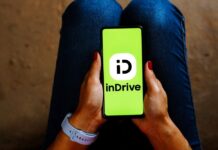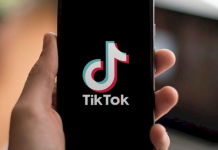The Research and Insights group at Google’s Next Billion Users initiative has released a white paper on the challenges new internet users experience when learning to go online for the first time and encourages technology creators to actively discuss how it can build digital services that can add to the current learning system for these new users.
The new white paper, “Informal Teachers and the pivotal role they play for New Internet Users”, points to the obstacles many new users across South and Southeast Asia, Latin America and Sub-saharan Africa encounter when on-boarding online with their smartphones. It also identifies the pivotal role that ‘informal teachers’, identified as family members, friends and neighbors, play in on-boarding them.
Here are some key insights from the white paper.
- New internet users in these regions differ to the current internet population
These new users will make a significant portion of the next billion people coming online for the first time by 2025. However, they are more likely to live in rural communities, to have a lower income, to be women or older people, to have limited prior exposure to digital technology, and tend to learn by instruction rather than exploration. - New internet users often learn from others around them, not by themselves
New users depend on networks of informal teachers — their family members, friends and neighbors — to teach and instruct them. They need help as much as 75% of the time they try to learn something, from tasks such as turning on their phones to ordering items online. - Learning support is not always available or accessible for new internet users
Around 50% of the people new users want as their teachers are not easily accessible or don’t have enough time to help. As a result, many of them often only learn when their teachers are present and miss key learning opportunities.
4. The majority of current learning experiences are entirely rote learning
Conceptual teaching was observed to help new internet users understand more complex actions on their phones. However, 78% of the learning experiences reported in the study were entirely rote learning without further explanation of the purpose behind an action.
5. Technology creators can enable more users to achieve their learning goals
Only 30% of new internet users who participated in the study rated their learning experience as positive and 52% scored them as neutral. The study suggests that there is an opportunity for technology creators to augment the existing on-boarding experience for new users and their teachers to learn more effectively together, especially during on-boarding.
Toward this, Google has started to take steps to apply the insights from the study to shape product design. One of these examples is from Google Go — an app from Google Search tailor-made for people coming online for the first time — where Google added short tutorial videos to the app’s home-screen. The videos explain the larger concepts behind the tasks rather than describing the tasks themselves.
“The next billion users coming online tend to learn from others around them, not by themselves. This is challenging for new users because technology is often designed for users who learn and explore individually.
When we acknowledge the pivotal role teachers play in these learning environments, we see an opportunity for technology creators to improve how we teach users about their smartphones, apps and the internet.
As a result, new users and teachers can deepen their digital skills together to reach their learning goals,” says Tracey Lindsay Chan, Research Lead for the study.
Findings of the white paper are based on a broader study on new internet users conducted over a year. The study was conducted in Brazil, India, Indonesia, Mexico and Nigeria with 200 participants. You can view the full white paper here.




























